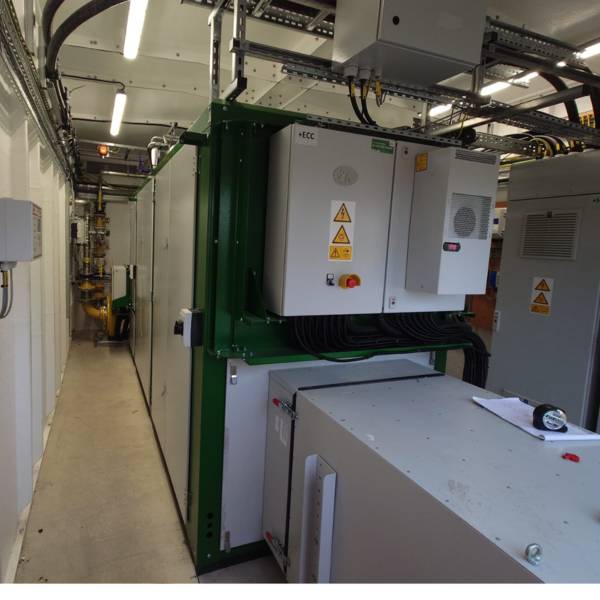Powering Efficiency: Sustainable Energy Transformation for a Prestigious Airport Hotel
Facts & figures

Energy Integration & System Efficiency
The CHP system has been seamlessly integrated into the hotel’s plant infrastructure and now serves as the primary source of on-site heating and a major contributor to electricity supply. Designed for continuous operation, the agenitor 408 meets the full thermal demand of the hotel, allowing the existing boilers to be placed in standby mode. Whilst still available as a backup if needed, these boilers are no longer a part of the hotel's day-to-day heating strategy — significantly reducing run hours and improving overall system efficiency.
Key Operational Advantages Include:
- Maximised CHP Operation: The CHP system operates continuously throughout the day, delivering consistent and stable energy to the hotel and fulfilling both electrical and thermal demands. Thanks to its automatic, demand-driven control, the CHP adapts its output to the hotel’s varying electricity consumption over the course of the day. This ensures that nearly all generated electricity is used on-site, preventing unwanted power export to the grid and guaranteeing the customer a maximum return on investment.
- Thermal Priority: With a thermal output of 383 kW, the CHP fully covers the hotel’s entire heating demand, ensuring reliable comfort across all guest facilities. The four existing boilers remain in standby mode as backup, but are not required during CHP operation, as the system alone is sufficient to meet all thermal requirements.
- Electricity Generation: Producing 360 kW of electricity, the unit contributes substantially to the site’s power needs, reducing reliance on grid electricity and improving energy resilience.
Supporting Sustainable Hospitality
Beyond operational efficiencies, this installation represents a strong step forward in sustainable hotel practices. By reducing fuel consumption and improving energy efficiency, the hotel is reinforcing its environmental commitments while maintaining premium guest experiences.
- Carbon Footprint Reduction: By operating a high-efficiency CHP system and sourcing gas backed by Renewable Gas Guarantees of Origin (RGGOs), the hotel has taken a significant step toward lowering its carbon footprint. While the carbon savings from CHP depend on various factors, the use of RGGO-backed gas ensures a strong commitment to supporting low-carbon, renewable energy sources.
- Energy Resilience: The system ensures more consistent control over energy costs and supply — a key advantage for large-scale hospitality venues.
- Guest Comfort: Heating, hot water, and ambient conditions remain stable across high-demand areas such as the spa and accommodation wings.
Setting a New Standard for Sustainable Hotel Operations
This energy transformation sets a compelling precedent for other high-occupancy, service-intensive hotels seeking to improve sustainability without compromising on performance. With 24/7 CHP operation, a strong reduction of traditional boiler systems, and highly efficient on-site power and heat generation, this airport hotel is now a leading example of how innovative energy systems can futureproof operations, simplify plant management, reduce carbon emissions, and elevate guest satisfaction — all whilst setting a new benchmark for sustainable hotel performance.